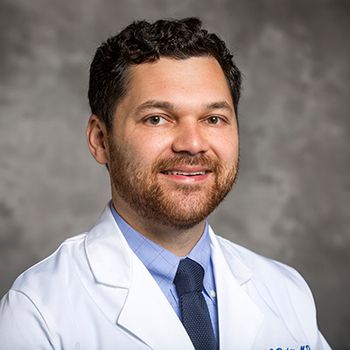
Oncology NEWS International
- Oncology NEWS International Vol 6 No 5
- Volume 6
- Issue 5
Efficacy of Prophylactic Mastectomy Shown
SAN DIEGO--In a groundbreaking study, researchers at the Mayo Clinic have documented that prophylactic mastecto-mies may dramatically reduce the risk of breast cancer in high-risk women. The risk reduction was measured as high as 91%, lead investigator Lynn Hartmann, MD, said at the 88th annual meeting of the American Association for Cancer Research (AACR).
SAN DIEGO--In a groundbreaking study, researchers at the Mayo Clinichave documented that prophylactic mastecto-mies may dramatically reducethe risk of breast cancer in high-risk women. The risk reduction was measuredas high as 91%, lead investigator Lynn Hartmann, MD, said at the 88th annualmeeting of the American Association for Cancer Research (AACR).
The researchers examined the medical records of approximately 2,500women who had undergone a prophylactic unilateral or bilateral mastectomyfrom 1960 to 1993 at the Mayo Clinic.
Among these women, roughly 950 had opted for a prophylactic bilateralmastec-tomy. These women had a mean age of 43 years. They elected the surgeryfor a variety of reasons: family history, troubling prior breast biopsies,or nodular breasts that made accurate mammograms difficult to obtain.
The remaining 1,500 or so women had a unilateral prophylactic mastectomyafter previously undergoing a mastectomy for cancer in the other breast.
Among the women who had bilateral mastectomy, 76 would have been expectedto develop breast cancer over the 17 years of the study. However, onlyseven women actually did receive a diagnosis of breast cancer, a 91% reductionin risk.
The researchers arrived at the predicted figure by using the Gail model,which predicts the likelihood that a given woman will develop breast cancerbased on various risk factors, including family history, age at menarche,age at first birth, and prior breast biopsies.
"The reduction in risk is seen in all family history groups,"Dr. Hartmann said. "Those with no family history, those with somefamily history, and those with a very significant family history."
Two thirds of these women had some family history of breast cancer,most with a significant family history. The remaining third had no familyhistory but had had numerous prior breast biopsies, sometimes with worrisomefindings.
Researchers documented a similar phenomenon among women who underwentunilateral mastectomy. Of this group of roughly 1,500 women, only ninebreast cancer cases have occurred so far. Dr. Hartmann noted that thereis no comparable predictor to the Gail model for this group, but the numbersappear to be similar.
"Our findings of reduced breast cancer risk with prophylactic mastectomyare significant; however, they should not be taken as a universal recommendationfor having this procedure," Dr. Hartmann said. "Rather, thesedata should contribute to a balanced discussion of the benefits and risksof various management strategies for individual women at high risk forbreast cancer."
The Mayo study for the first time provides women and their physicianswith definitive data about the effectiveness of this extreme surgery inhigh-risk cases. The report represents initial findings for the study,which is ongoing.
Other data are being collected on such aspects as the women's primaryreasons for having the procedure, their expectations of their risk of breastcancer before and after the procedure, and the impact of the surgery ontheir self-esteem and body image.
Genetic testing, as it improves, should help physicians target womenlikely to benefit from this type of extreme intervention, if they chooseit, Dr. Hartmann said. She also emphasized that genetic counseling is essentialbefore this type of surgery can be contemplated.
"If a woman elects to proceed with the surgery, at least now wecan give her some information about how effective it appears to be,"she said. "But we recognize it is not a simple decision."
Articles in this issue
almost 29 years ago
Delaying Chemotherapy May Compromise Distant Controlalmost 29 years ago
Precision Dosing a Reality with Intensity Modulated RTalmost 29 years ago
Breast Cancer Guide on CD-ROM Is Availablealmost 29 years ago
Mammography's Predictive Value May Be Improvedalmost 29 years ago
Oncology Administrators Must Plan for Transition in Mergersalmost 29 years ago
Differentiation Agent Improves Myelodysplasia Survival Ratesalmost 29 years ago
NCPB Hears From Several Cancer Groups on Policy Issuesalmost 29 years ago
Guidelines Needed for Distress in Cancer Patientsalmost 29 years ago
Skin Cancer Project Receives Recognitionalmost 29 years ago
Few Patients Surveyed Regret Prophylactic MastectomyNewsletter
Stay up to date on recent advances in the multidisciplinary approach to cancer.
Related Content



Navigating Hypofractionation, ADCs, and AI in Modern Radiation Oncology








































